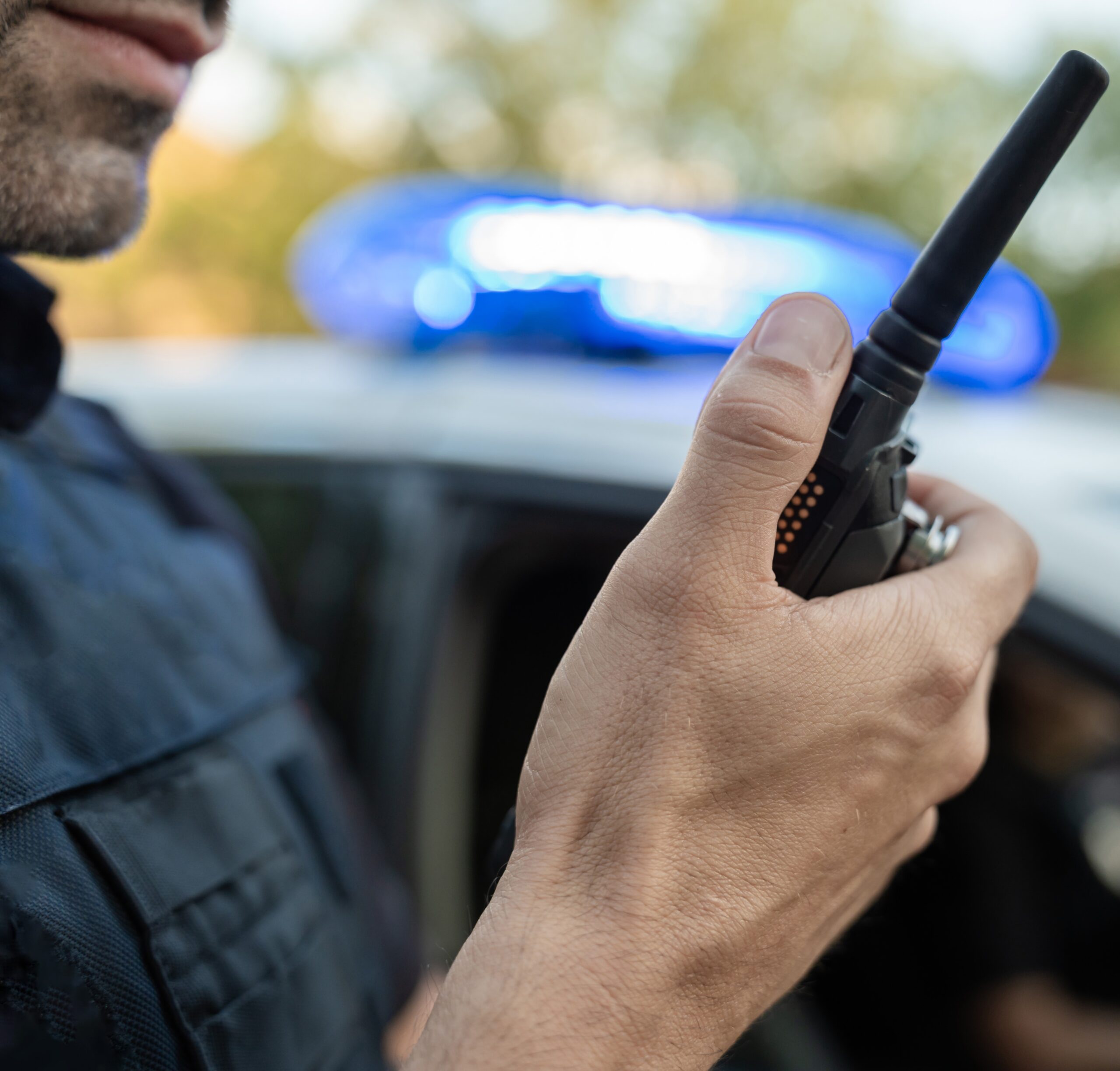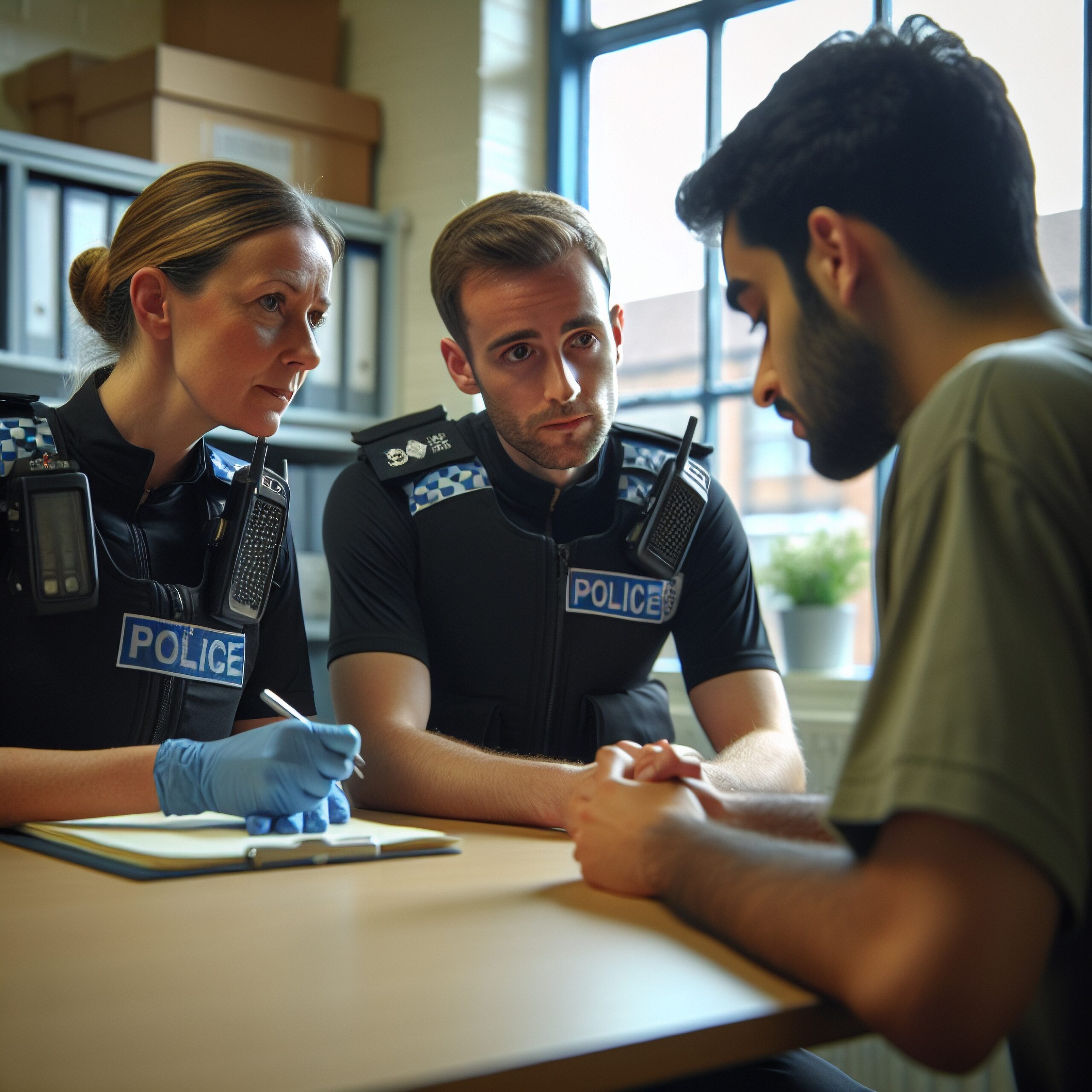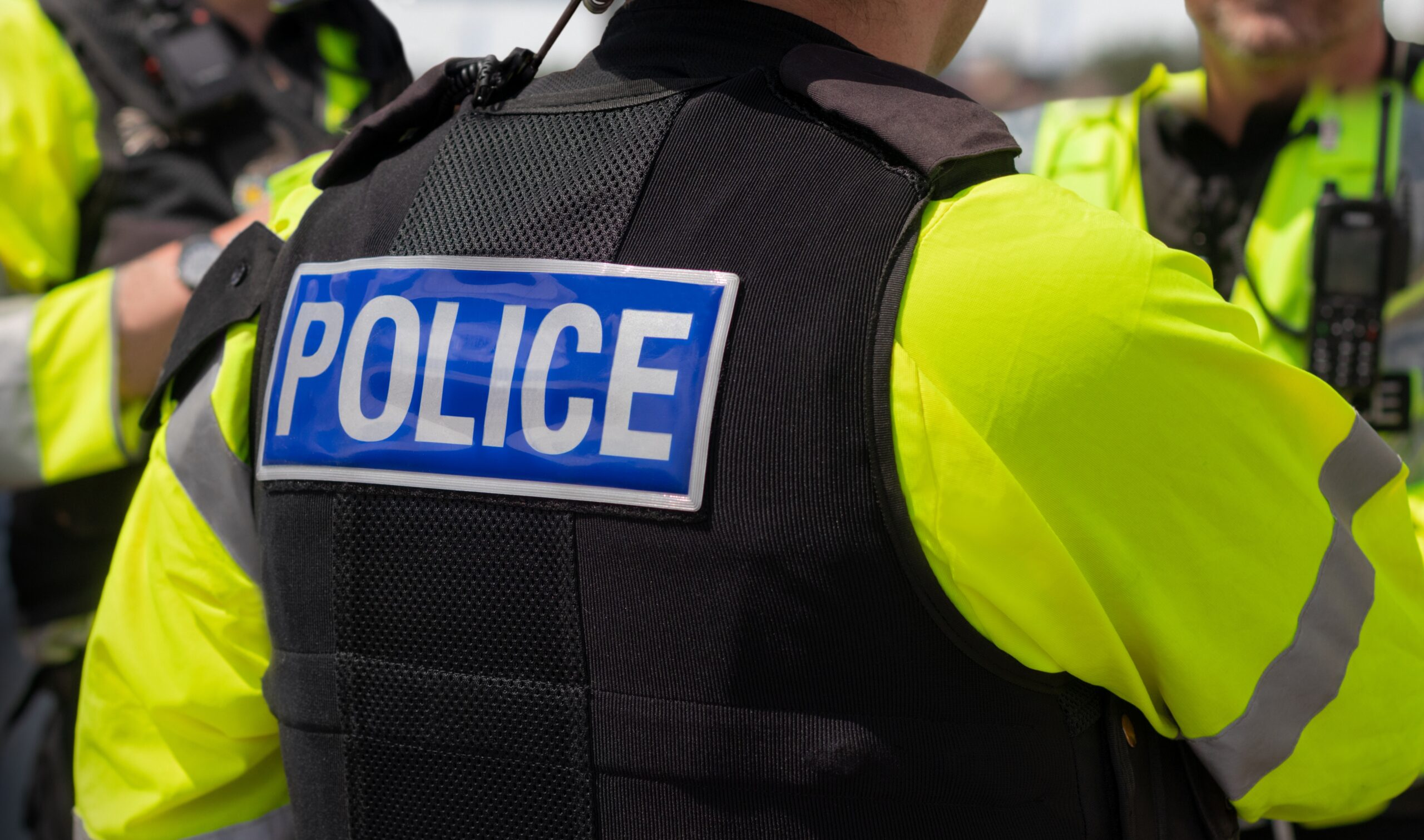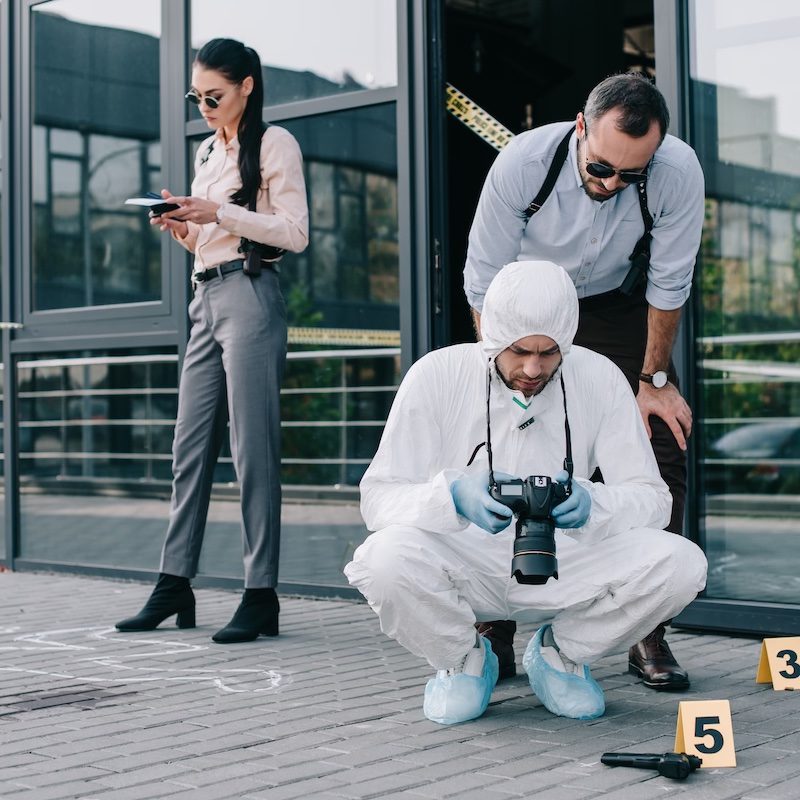What qualifications do I need to be a Police Officer?
Everything about the qualifications you need to become a Police Officer
Embarking on a career as a police officer is more than just a job; it’s a calling to serve and protect communities across the nation. As society faces ever-evolving challenges, the role of police officers has never been more crucial. By choosing this path, you are committing to uphold the law, ensure public safety, and make a tangible difference in people’s lives.
The journey to becoming a police officer is rigorous but rewarding, offering opportunities for personal growth and professional development. With comprehensive training programmes and support systems in place, you’ll be equipped with the skills needed to tackle any situation with confidence and integrity. Whether you’re passionate about community engagement or driven by the pursuit of justice, this career offers diverse paths that cater to various interests within law enforcement. Consider taking this step towards an impactful future where your contributions can help shape safer environments for everyone.
In this Police Officer qualifications guide
Qualifications to be a Police Officer
Becoming a police officer is more than just donning a uniform and upholding the law; it’s about committing to a career that demands integrity, resilience, and unwavering dedication to public service. If you’re considering this noble profession, understanding the qualifications required is your first step towards making an informed decision.
In the UK, the path to becoming a police officer involves meeting certain educational and personal criteria. While formal academic qualifications can vary depending on the specific force or entry route you choose – whether through direct application or via degree-holder entry programmes – the core qualities remain consistent across the board. Prospective officers must demonstrate excellent communication skills, critical thinking abilities, and a strong sense of community engagement.
Moreover, physical fitness is paramount in ensuring officers can meet the demands of their role effectively. Candidates are required to pass fitness assessments that evaluate their endurance and strength capabilities. Beyond physical attributes, psychological readiness is equally crucial; aspiring officers must possess emotional stability and sound judgement to handle challenging situations with composure.
The journey doesn’t end with meeting these initial requirements. Continuous professional development is integral in keeping pace with evolving societal needs and technological advancements within policing methods. Thus, embarking on this career path not only requires meeting current qualifications but also maintaining a lifelong commitment to learning and growth.
Ultimately, becoming a police officer in the UK offers an opportunity to make a tangible difference in people’s lives while safeguarding communities – a calling for those who are truly passionate about justice and service above self.
What qualifications are needed to be a Police Officer?
Becoming a police officer in the UK is a noble pursuit that requires dedication, integrity, and a commitment to public service. Understanding the qualifications needed and the roles at different levels can help you prepare for this rewarding career.
Level 2 Police Officer Qualifications
At Level 2, aspiring police officers typically need to have achieved GCSEs in English and Maths at grade C or above. This foundational level focuses on understanding basic law enforcement principles and community engagement. Officers at this stage are often involved in patrolling duties, responding to incidents, and providing support during investigations.
Level 3 Police Officer Qualifications
Progressing to Level 3 usually requires further education or equivalent experience, such as A-levels or relevant vocational qualifications. At this level, officers begin to take on more specialised roles within the force. They might work in areas such as traffic control or neighbourhood policing teams where they develop skills in conflict resolution and crime prevention strategies.
Level 4 Police Officer Qualifications
Level 4 positions demand advanced qualifications – often including a degree – or significant experience within the force. These roles involve higher responsibilities such as managing teams, strategic planning, and leading major investigations. Officers at this level are expected to demonstrate leadership qualities and an ability to make critical decisions under pressure.
Each stage of a police officer’s career offers unique challenges and opportunities for growth. By understanding these requirements and responsibilities, you can better prepare yourself for each step of your journey in law enforcement. Whether you’re just starting out or aiming for advancement within the ranks, there is always room for development as you serve your community with honour and diligence.

Professional bodies for a Police Officer
Joining a professional body can be a significant step in advancing your career as a police officer, offering numerous benefits that enhance both personal and professional development. In the UK, there are several esteemed organisations that provide invaluable support and resources for police officers at various stages of their careers.
The Police Federation of England and Wales is one such body, representing rank-and-file officers while advocating for their rights and welfare. Membership grants access to legal advice, insurance services, and welfare support – vital resources in this demanding profession.
Another notable organisation is the College of Policing, which plays a crucial role in setting standards for training and development across the force. As a member, you can benefit from cutting-edge research and best practice guidelines designed to elevate policing standards nationwide.
For those interested in leadership roles or furthering their education within law enforcement, the Association of Chief Police Officers (ACPO) offers networking opportunities with senior officers across various departments. This connection can be instrumental in gaining insights into strategic decision-making processes.
Lastly, consider joining the British Association for Women in Policing (BAWP), which focuses on supporting female officers through mentorship programmes and advocacy initiatives aimed at promoting gender equality within the force.
By becoming part of these professional bodies, police officers not only gain access to valuable resources but also join a community dedicated to upholding excellence within the field of law enforcement.
Training fees to become a Police Officer
Embarking on the path to becoming a police officer is not only a noble pursuit but also an investment in your future. Understanding the costs associated with training fees at various levels can help you plan and prepare effectively for this rewarding career.
At Level 2, initial training fees are relatively modest, offering foundational knowledge and skills essential for policing. This stage is crucial as it sets the groundwork for more advanced learning. The financial commitment here is manageable, making it accessible to many aspiring officers.
Progressing to Level 3 involves more comprehensive training, where you’ll delve deeper into specialised areas of policing. While the fees increase at this level, they reflect the advanced nature of the curriculum and the specialised skills you will acquire. It’s important to view this as an investment in your professional development that will pay dividends throughout your career.
Finally, Level 4 represents the pinnacle of police training, equipping you with expert knowledge and leadership capabilities. The costs at this stage are higher due to the intensive nature of the programme and its focus on strategic aspects of policing. However, completing Level 4 opens doors to senior roles within law enforcement agencies, offering both personal fulfilment and financial rewards.
In conclusion, while there are costs associated with each level of police training, they are a necessary step towards achieving a fulfilling career in law enforcement. By planning ahead and considering these expenses as investments in your future success, you’ll be well-prepared to embark on this vital profession with confidence.

Getting experience to be a Police Officer
To embark on a career as a police officer, gaining relevant experience is crucial. Not only does it enhance your skills, but it also makes you a more attractive candidate during the recruitment process. One effective way to gain experience is by participating in volunteer programmes with local police forces. These opportunities allow you to understand the inner workings of law enforcement and develop essential skills such as communication, problem-solving, and teamwork.
Additionally, consider pursuing work placements or internships that focus on community safety or social services. These roles provide insights into the societal issues you’ll encounter as a police officer and demonstrate your commitment to public service. Engaging in these experiences shows potential employers that you are proactive and dedicated to understanding the complexities of policing.
Further education can also be beneficial. Courses in criminology, law, or sociology offer foundational knowledge that complements practical experience. By combining academic learning with hands-on involvement, you’ll be well-prepared for the challenges of policing and stand out as a strong candidate ready to serve your community with integrity and professionalism.



